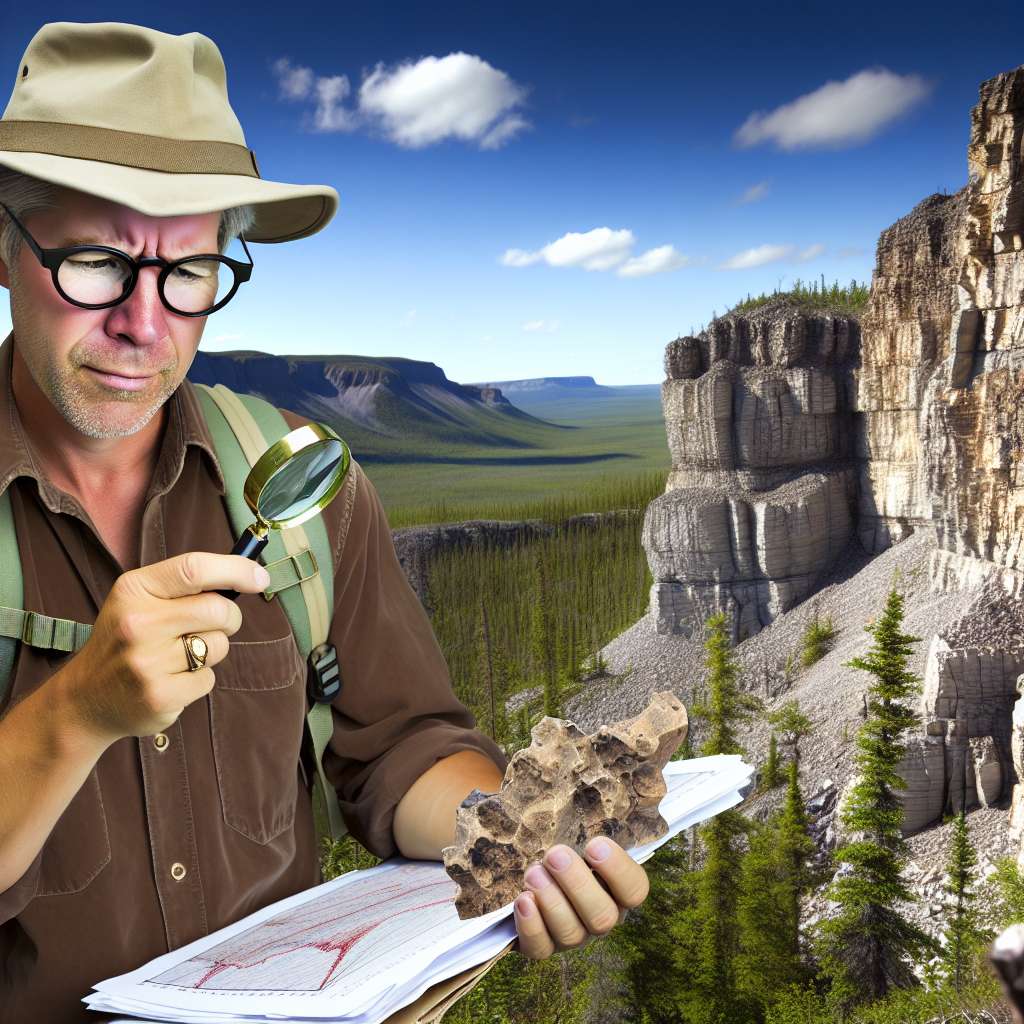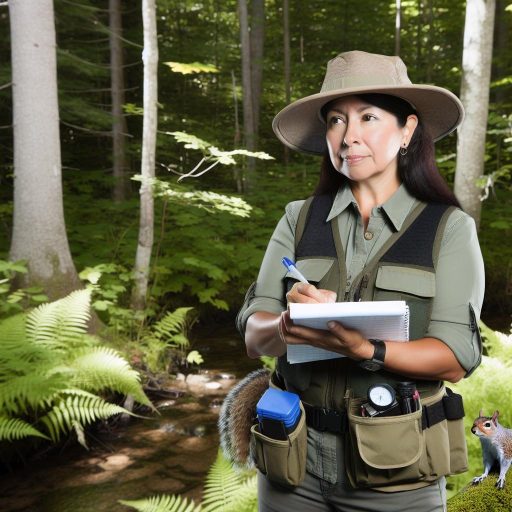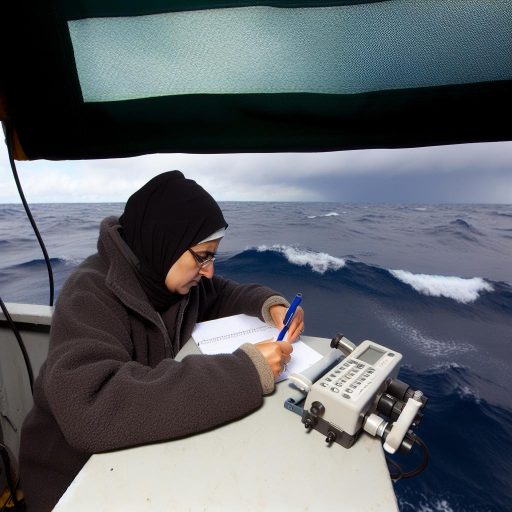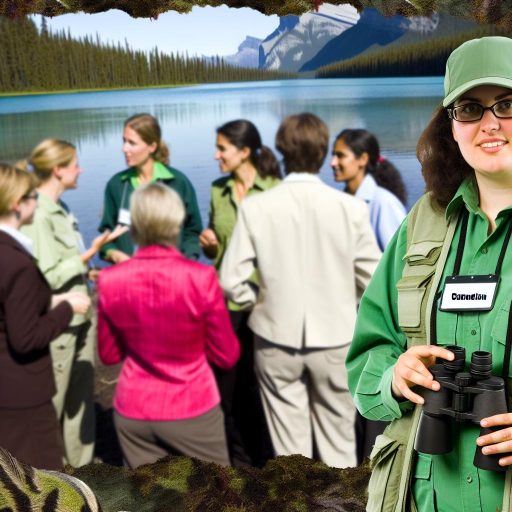Understanding the Role of a Geologist in Various Industries
Exploration and Natural Resources
Geologists play a critical role in the exploration of natural resources.
They assess areas for potential mineral, oil, and gas deposits.
This evaluation often leads companies to new extraction sites.
Additionally, geologists study geological formations to improve extraction techniques.
Environmental Conservation and Management
Geologists contribute significantly to environmental conservation efforts.
They analyze soil and water samples to monitor environmental quality.
Moreover, they help in assessing the impacts of natural disasters.
This knowledge aids in developing effective disaster response strategies.
Furthermore, geologists assist in restoring damaged ecosystems.
Construction and Civil Engineering
In civil engineering, geologists ensure safe construction practices.
They analyze ground stability and soil properties before projects begin.
This information is essential when designing foundations and retaining walls.
Additionally, geologists help mitigate risks such as landslides and tremors.
Their expertise ensures that construction projects are both safe and sustainable.
Education and Research
Many geologists engage in education and research initiatives.
They teach future generations about earth sciences in universities.
Additionally, they conduct research to advance geological knowledge.
Such research can lead to innovations in resource management and conservation.
Geologists often collaborate with other scientists on interdisciplinary studies.
Consulting Services
Geologists frequently provide consulting services across industries.
They offer expertise in resource management and environmental assessments.
Businesses rely on their advice for regulatory compliance and project planning.
Moreover, geologists assess geological hazards for safety measures.
This support is crucial for informed decision-making in many sectors.
Key Subject Areas in High School for Aspiring Geologists
Science Courses
A strong foundation in science is essential for aspiring geologists.
Unlock Your Career Potential
Visualize a clear path to success with our tailored Career Consulting service. Personalized insights in just 1-3 days.
Get StartedFocus on biology, chemistry, and physics during high school.
These subjects build critical analytical and problem-solving skills.
Additionally, they prepare you for advanced studies in geology.
Mathematics Proficiency
Math skills are crucial for interpreting geological data.
Courses in algebra and calculus will be beneficial.
Geometry also aids in understanding spatial relationships.
Strengthening your math skills will enhance your analytical abilities.
Geography Knowledge
Understanding geography is vital for aspiring geologists.
Study physical geography to learn about Earth’s processes.
Familiarize yourself with maps and geospatial analysis.
This knowledge will help you understand landforms and ecosystems.
Environmental Science Insight
Take environmental science classes to explore ecosystems.
This subject provides a context for geological studies.
Additionally, it emphasizes the importance of natural resources.
Understanding environmental impact is crucial for modern geology.
Field Experience Opportunities
Participate in field trips to local geological sites.
Hands-on experience reinforces classroom learning effectively.
Seek internships or volunteer opportunities with geological organizations.
This experience will enhance your resume and skill set.
Post-secondary Educational Requirements for Geology
Understanding Degree Options
Many aspiring geologists start their journey with a bachelor’s degree in geology.
This degree provides essential foundational knowledge and skills.
Some students may also choose a related field such as environmental science or earth science.
Furthermore, obtaining a master’s degree can enhance job opportunities.
Advanced degrees can focus on specialized areas like geophysics or mineralogy.
Coursework Essentials
Key courses for geology students include mineralogy and petrology.
Courses in physical geography and sedimentology are also crucial.
Additionally, students should take courses in chemistry and physics to build a solid foundation.
Field studies play a vital role in geology education.
Fieldwork allows students to apply classroom knowledge to real-world situations.
Gaining Practical Experience
Internships offer practical experience and can boost a resume significantly.
Many universities partner with local geological organizations for internship opportunities.
Additionally, research projects can provide valuable hands-on experience.
Engaging in field research can highlight a student’s capabilities to potential employers.
Licensure and Certification Requirements
Many states require geologists to be licensed, especially for certain positions.
To become licensed, candidates typically must pass the Fundamentals of Geology exam.
Working under a licensed geologist for a specified period is often necessary.
Obtaining certification from professional organizations can enhance a geologist’s credentials.
Such certifications may show expertise in specialty areas such as hydrogeology.
Professional Development Opportunities
Joining professional associations can facilitate networking and career growth.
Conferences and workshops often offer opportunities for continued education.
Staying updated on industry trends is essential for career advancement.
Many organizations also provide resources for certifications and further training.
Find Out More: How Geneticists Impact Canadian Healthcare and Innovation
Types of Degrees in Geology
Bachelor’s Degree in Geology
A bachelor’s degree offers foundational knowledge in geology.
This degree typically lasts four years.
Students explore various geological processes and materials.
Common courses include mineralogy, petrology, and paleontology.
Many programs offer fieldwork to enhance practical skills.
Students often complete a capstone project or thesis.
Internships provide valuable experience in the field.
Graduates can pursue entry-level positions in environmental consulting or education.
Master’s Degree in Geology
A master’s degree provides advanced knowledge in specialized areas.
This program generally requires two years of study beyond the bachelor’s.
Students select a concentration such as geophysics or hydrogeology.
Research opportunities allow students to contribute to the field.
Many programs also include a thesis requirement.
Graduates can work in high-level consulting or governmental roles.
Having a master’s degree improves job prospects significantly.
PhD in Geology
A Doctorate in Geology represents the highest level of education.
This path typically involves four to six years of study after a master’s degree.
PhD candidates conduct original research in a chosen area.
Dissertations must provide new insights to the geological community.
Students gain expertise in research methodologies and analysis.
Graduates often pursue academic positions or leadership roles in research institutions.
Additionally, they may take on roles in policy-making or advanced consulting.
Career Paths Based on Degree Level
Each degree level opens different career opportunities.
Bachelor’s graduates typically start in entry-level positions.
Master’s graduates can work in specialized roles with increased responsibilities.
PhD holders often engage in teaching or advanced research positions.
Networking and internships enhance career prospects at all levels.
Continued education and certification further boost employability.
You Might Also Like: Role of Wildlife Biologists in Species Preservation
Internships and Practical Experience
Importance of Internships
Internships are essential for aspiring geologists.
They provide hands-on experience in real-world settings.
Additionally, internships help students apply classroom knowledge.
They also enhance critical thinking and problem-solving skills.
Employers value relevant experience in candidates.
Types of Opportunities
Many types of internships are available in geology.
Fieldwork internships allow students to gather data outdoors.
Lab-based internships focus on analyzing samples.
Industry-related internships provide insight into professional practices.
Moreover, research internships involve working on scientific projects.
Finding Internships
Students can find internships through various channels.
University career services often list available positions.
Online job boards also showcase options in geology.
Networking with professionals can lead to hidden opportunities.
Attending conferences helps students connect with potential employers.
Maximizing the Internship Experience
To make the most of an internship, set clear goals.
Communicating effectively with supervisors is crucial.
Additionally, asking questions aids in learning.
Journaling experiences helps track progress and insights.
Lastly, networking during internships fosters professional relationships.
Gain More Insights: Geologist Career Growth Opportunities in Canada

Licensing and Certification Requirements for Geologists
Importance of Licensing
Licensing ensures that geologists meet professional standards.
It protects public health and the environment from unqualified practitioners.
Additionally, it enhances the credibility of the geology profession.
Initial Education Requirements
To start, prospective geologists need a bachelor’s degree.
This degree should be in geology or a related field.
Courses in chemistry, physics, and mathematics are often required.
Moreover, hands-on laboratory and fieldwork experience is crucial.
Professional Experience
After completing their education, aspiring geologists must gain experience.
Most states require a specific number of supervised work hours.
Commonly, this involves working under a licensed geologist.
Experience in diverse geological settings enhances their qualifications.
Examinations for Licensure
Once education and experience are obtained, candidates must pass an exam.
The Fundamentals of Geology exam is the first step.
Successful completion allows candidates to obtain their Geologist-in-Training certificate.
After gaining additional experience, they can take the Professional Geologist exam.
Continuing Education for License Renewal
Most states require licensed geologists to engage in continuing education.
This ensures that professionals remain updated with industry advancements.
Courses can cover various topics, from advanced geology to ethics.
Regular participation demonstrates commitment to professional growth.
State-Specific Requirements
Each state has unique licensing requirements for geologists.
Therefore, it is crucial to research the specific requirements in your state.
Some states have additional requirements for specialty areas.
For instance, hydrogeology or engineering geology may require different credentials.
Uncover the Details: Key Responsibilities of an Epidemiologist
Continuing Education and Specialization Opportunities
Graduate Programs
Many universities offer master’s and doctoral programs in geology.
These programs provide advanced knowledge and research skills.
Consider institutions like Stanford University and the University of California.
Graduate programs often focus on specific geology fields such as mineralogy or petrology.
Certification Programs
Professional certification enhances employability and credibility.
The American Institute of Professional Geologists offers various certifications.
Other recognized organizations include the National Association of State Boards of Geology.
These certificates can signify expertise in specialized areas.
Workshops and Field Courses
Hands-on workshops help solidify practical skills in geology.
Look for programs hosted by organizations like the Geological Society of America.
Field courses enhance observational skills and allow for real-world applications.
Such experiences greatly benefit aspiring geologists.
Online Learning Opportunities
Online courses provide flexibility for continuing education.
Platforms like Coursera and edX offer geology-related courses.
These online resources can cover topics from environmental geology to geophysics.
Virtual learning opens doors for those balancing work and education.
Networking and Professional Development
Joining professional societies fosters valuable networking opportunities.
Organizations such as the American Geophysical Union contribute resources and support.
Attending conferences keeps professionals informed on the latest research.
Networking can lead to mentorship opportunities and potential job openings.
Career Pathways
Current Job Market Trends
The job market for geologists is evolving rapidly.
Recent demand for natural resources drives growth in this field.
Emerging technologies also create new opportunities for geologists.
Job openings are increasing in sectors like environmental consulting.
Mining companies continue to seek skilled geologists for exploration.
Furthermore, state and federal agencies require geological experts.
Opportunities in Various Sectors
Geologists can find roles in several industries.
Oil and gas exploration remains a significant area of employment.
Environmental protection agencies also hire geologists for assessments.
Additionally, construction firms need geologists for site evaluations.
Academics and research institutions often seek geologists for studies.
Consulting firms provide diverse projects that utilize geological expertise.
Skill Development for Emerging Roles
Geologists must enhance their technical skills to stay competitive.
Computer modeling and data analysis are increasingly important.
Knowledge of Geographic Information Systems (GIS) is essential.
Furthermore, soft skills like communication and teamwork are vital.
Continuous education and training enhance career prospects.
Future Outlook for Geologists
The job outlook for geologists shows promising growth.
As climate change concerns rise, environmental geologists are critical.
Innovations in technology will create new geological roles.
This trend encourages young professionals to enter the field.
Additional Resources
Career Path Suggestions | Astrobiology
Career Paths to the Okeanos: Deep Connections 2019: Exploring …




